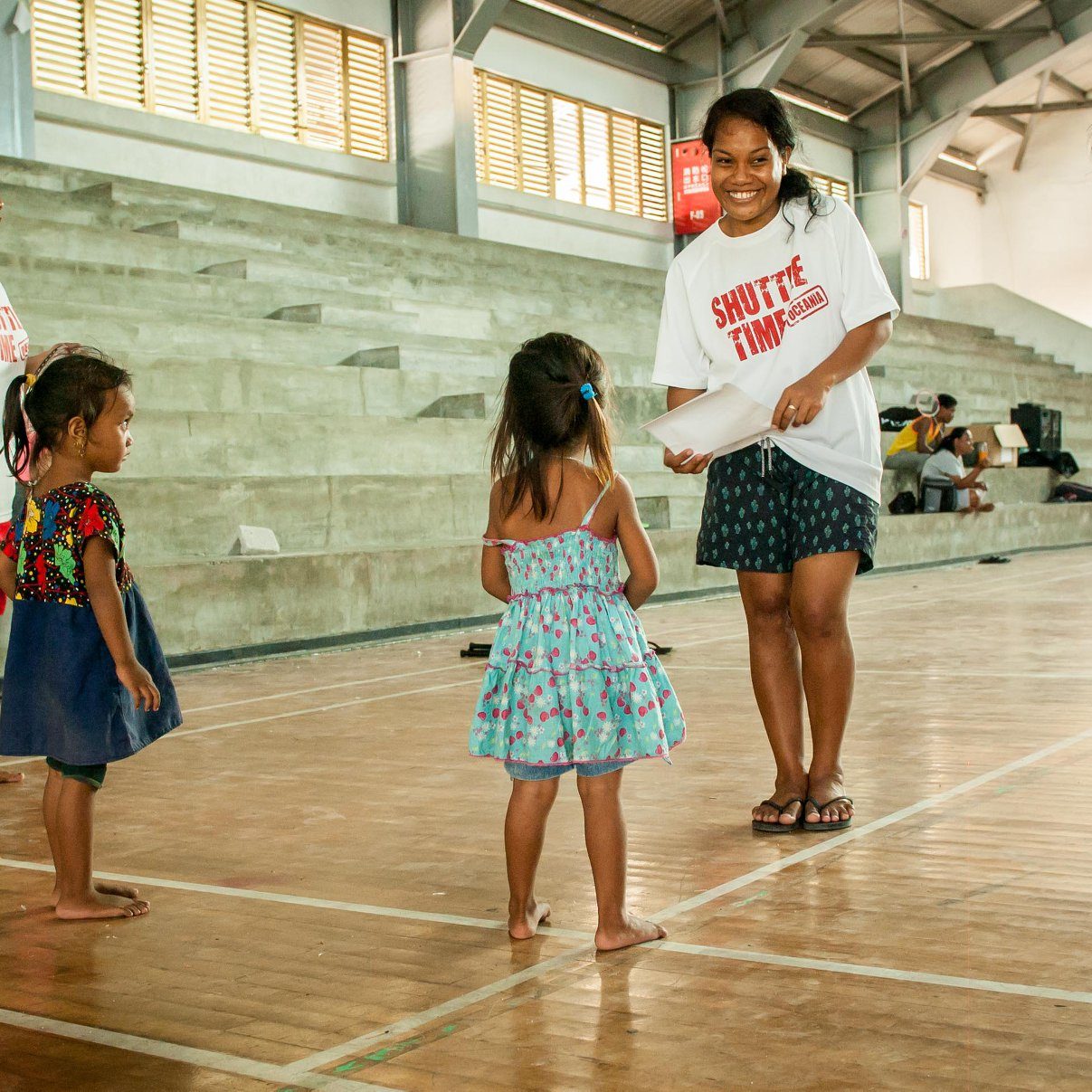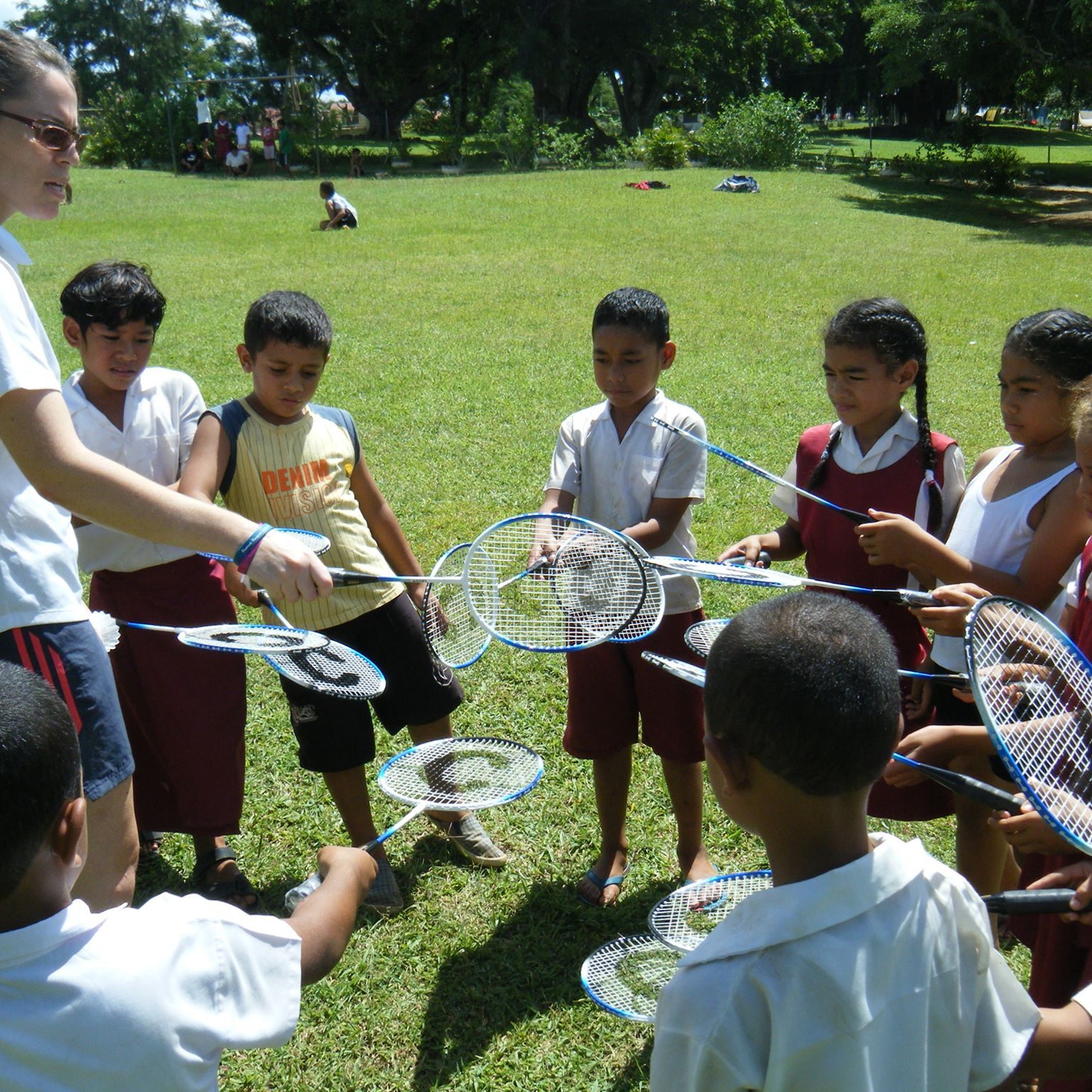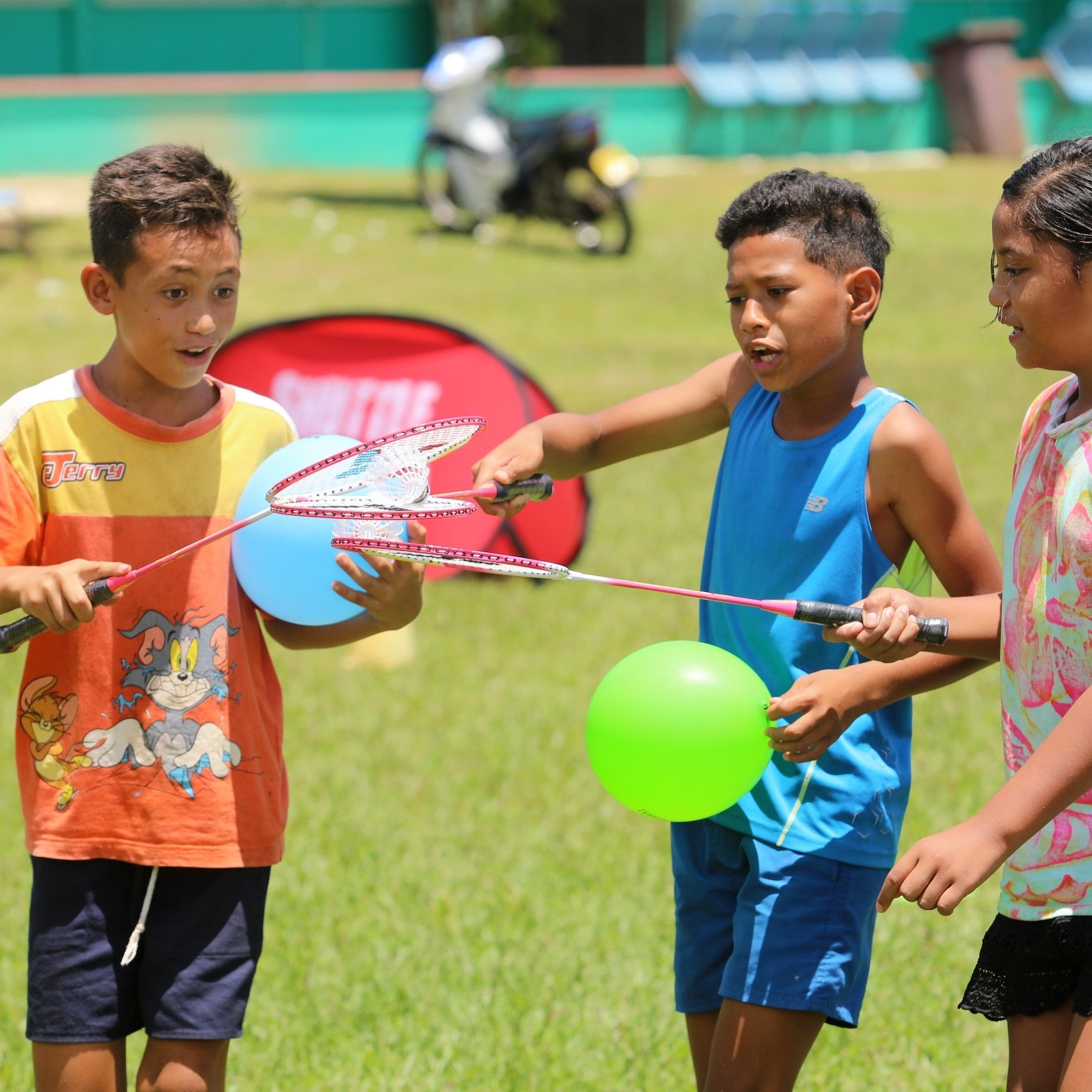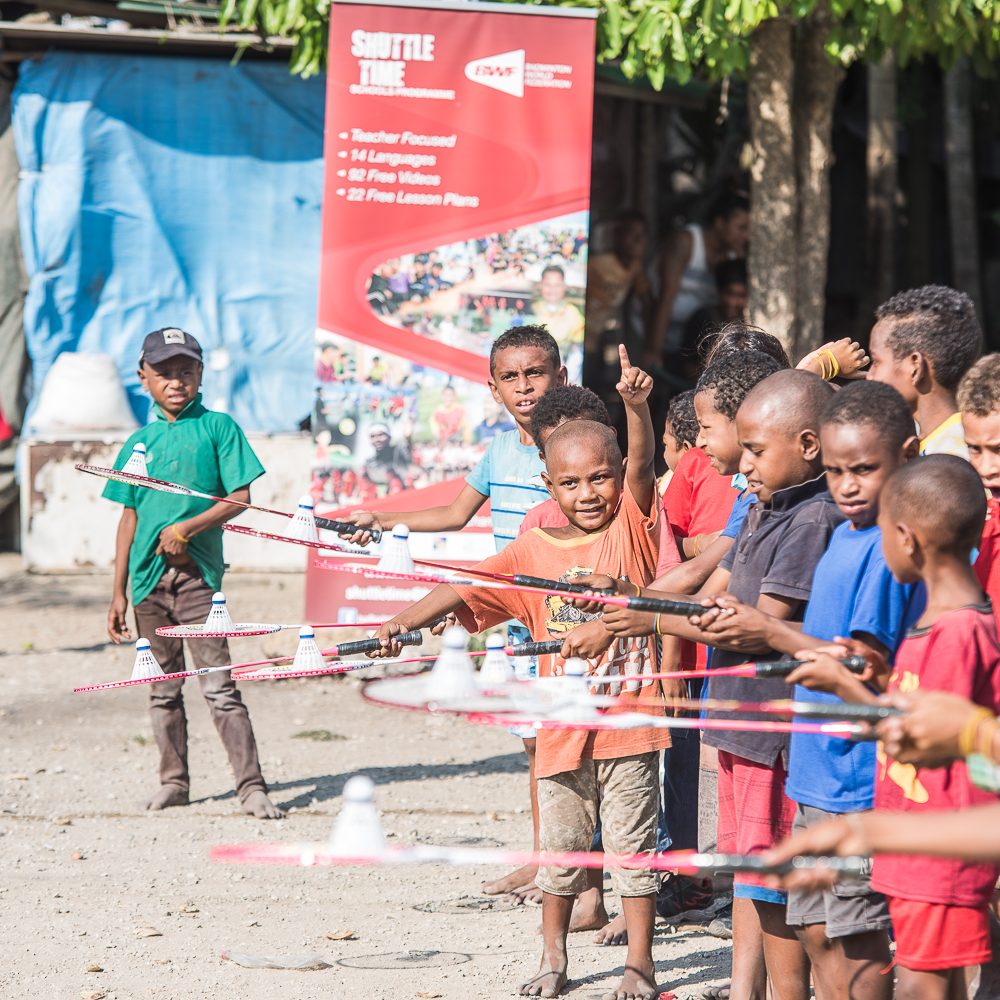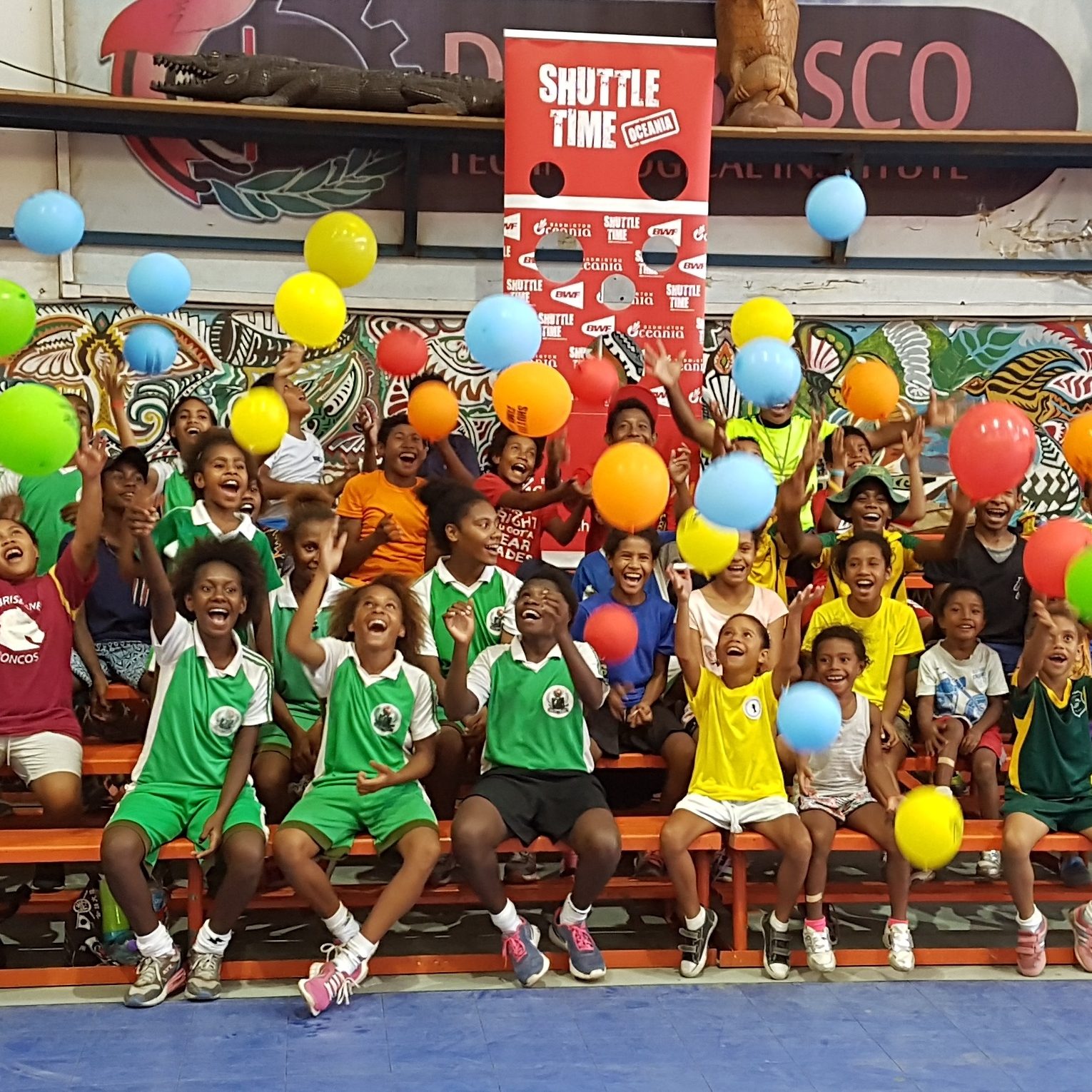Pictured: Shuttle Time participants in Kiribati. Text: BWF staff and Badminton Oceania
Remember the study by Shinji Takahashi at Tohoku Gakuin University which proved how useful badminton was to boost ‘executive function’?
The benefits of badminton continue to be researched, with a team from Coventry University (in England), who have recently proven the significance of BWF Shuttle Time and improving schoolchildren’s Fundamental Movement Skills (FMS) – a key indicator of their overall fitness. The study, by Michael J Duncan and his colleagues, found that Shuttle Time has been more effective than the UK’s regular national curriculum on Physical Education classes.
Funded by the BWF Sport Science programme, the ‘Dose Response Effects of the BWF Shuttle Time Programme on Children’s Fundamental Movement Skills, Motor Fitness and Physical Activity’ study was conducted on 158 children (83 boys and 75 girls) aged 6-9 from two primary schools over a 10-week period.
The Exercise
- Children were divided into three batches.
- One batch underwent Shuttle Time training twice a week, another once a week.
- The third batch continued their regular twice-a-week PE classes, which consisted of one session focussed on cricket and another on hockey and basketball.
- Tests on FMS (locomotor and object control skills), perceived FMS and motor fitness were assessed before, immediately after and 10 weeks later.
- Researchers filmed the children and analysed how competent they were in their FMS, and asked them to self-assess how well they thought they could perform different movement patterns.
Key Findings
- Engaging in Shuttle Time improved the children’s FMS immediately.
- More importantly, it was maintained for 10 weeks after the intervention had finished, demonstrating Shuttle Time’s sustained and lasting impact on their FMS.
- Those who undertook Shuttle Time twice per week saw larger improvements in their FMS than the group that did it once.
- Motor fitness (movement outcomes) produced similar results.
- The children demonstrated improvements in 10m sprint speed and standing long jump distance post intervention and 10 weeks after.
Significance
FMS development is related to lifelong health, well-being and academic achievement. To develop FMS proficiency, appropriate activities need to be implemented during PE classes. BWF recognises Shuttle Time as an effective means to develop FMS for children aged 5-15. Although badminton-related, Shuttle Time can also apply to a range of sports and physical activities.
Conclusion
The results suggest that Shuttle Time has a positive short term and sustained (post-10 weeks) effect on children’s FMS and motor fitness. It presents an effective mechanism to develop positive health trajectories for children, giving them the fundamental movement skills to lead physically active lives both as children and into adulthood.
BWF Development Chair David Cabello said the study validated BWF’s approach.
“We are extremely gratified by the findings of this study. When we first started to develop the programme, we carried out extensive research on PE national curriculums and their associated performance indicators. We strongly feel this research has vindicated that approach.”
The BWF spoke to Badminton Oceania at the VICTOR Oceania Championships in 2019 to see how Shuttle Time has impacted the region:
Badminton Unlimited 2019 | Oceania Shuttle Time | BWF 2019
BWF Shuttle Time has been pivotal in the development and promotion of badminton in the Pacific 🏸Learn how the initiative has brought poeple closer to badminton ⬇️🎥 @BWF — Badminton World Federation
Posted by Badminton Oceania on Tuesday, April 14, 2020

